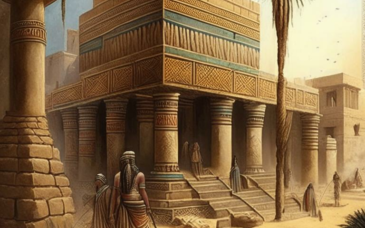In the dynamic landscape of Middle East Studies, the internet serves as a gateway to a wealth of resources that enrich scholars, researchers, and enthusiasts alike. This post aims to explore the diverse array of internet resources available for those delving into the intricate tapestry of Middle East Studies, offering a comprehensive guide to valuable databases, archives, and platforms that facilitate a deeper understanding of the region's history, culture, and contemporary affairs.
Databases and Academic Journals:
Middle East Studies benefit immensely from the vast databases and academic journals accessible online. Institutions, such as JSTOR, Project MUSE, and Brill Online, provide a trove of scholarly articles, research papers, and historical documents that cover a wide spectrum of topics—from ancient civilizations to modern geopolitics. These resources serve as invaluable tools for researchers seeking in-depth analyses and authoritative perspectives.
Digital Archives:
Digital archives play a crucial role in preserving and disseminating historical records and cultural artifacts related to the Middle East. Institutions like the Digital Public Library of America (DPLA) and the Middle East Virtual Library (MENALIB) offer digitized manuscripts, photographs, and archival materials, granting users unprecedented access to primary sources that illuminate the region's past.
Online Mapping and Geographic Resources:
Understanding the geopolitical landscape of the Middle East is integral to comprehensive studies. Online mapping resources, such as the Middle East Institute's interactive maps and the Perry-Castañeda Library Map Collection, provide visual tools that aid in exploring historical boundaries, geopolitical changes, and cultural landscapes.
News and Contemporary Analysis Platforms:
For those interested in staying abreast of current events and contemporary analyses, online platforms like Al Jazeera, Middle East Monitor, and Carnegie Middle East Center offer up-to-date news, opinion pieces, and in-depth analyses. These platforms contribute to a nuanced understanding of ongoing developments in the Middle East.
Language Learning and Cultural Resources:
Language proficiency is often key to a comprehensive understanding of the Middle East. Online language learning platforms like Duolingo and Transparent Language can be valuable tools for acquiring Arabic, Persian, or other regional languages. Additionally, cultural resources such as the Qatar Digital Library provide insights into the art, literature, and traditions of the Middle East.
The internet serves as a treasure trove for Middle East Studies, offering a vast array of resources that cater to the diverse interests of scholars and enthusiasts. From academic databases to digital archives, mapping tools, news platforms, and language learning resources, the online landscape enriches the study of the Middle East, fostering a deeper appreciation for its rich history, cultural diversity, and contemporary dynamics. Whether delving into ancient civilizations or navigating modern geopolitical complexities, these internet resources provide an indispensable toolkit for those exploring the complexities of the Middle East.


